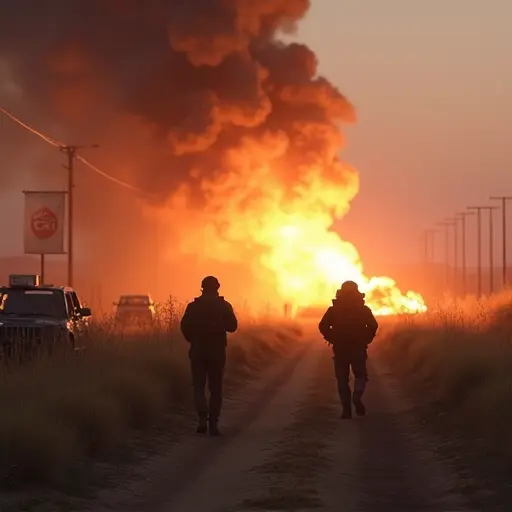
Middle East Tensions Reach Boiling Point
Israel launched a massive wave of strikes against Iran early Friday morning, targeting nuclear facilities and military sites in an unprecedented escalation of hostilities. According to Israeli military sources, over 200 jets struck more than 100 locations across Iran, including the Fordow nuclear enrichment facility. Iranian state media reports at least 78 casualties, though these figures remain unverified.
Diplomatic Efforts Collapse
The attacks come after failed nuclear negotiations between US envoy Steve Witkoff and Iranian officials. Witkoff had warned Senate Republicans that Iran could respond with mass casualty attacks if provoked. "We are not involved in strikes against Iran," stated US Secretary of State Marco Rubio, while emphasizing Israel's right to self-defense. The UN Security Council held an emergency session following Iran's formal complaint about airspace violations.
Regional Reactions and Consequences
Saudi Arabia condemned the "heinous Israeli attacks," while Qatar expressed "deep concern over dangerous escalation." Oman, which mediated recent nuclear talks, called the strikes a "reckless violation of international law." The Houthi rebels in Yemen declared full support for Iran's "legitimate right to defend itself," raising concerns about regional spillover. The International Atomic Energy Agency confirmed damage to nuclear sites, with Director Rafael Grossi warning that attacking such facilities "risks grave consequences."
Military Preparations and Warnings
Iran had recently showcased its "Fattah" ballistic missiles during military exercises and increased production to approximately 50 missiles monthly. CENTCOM commander Gen. Erik Kurilla previously testified that Israeli strikes would expose US forces in the region to retaliation. The US evacuated non-essential staff from Baghdad and military families from Gulf bases prior to the attack.

 Nederlands
Nederlands
 English
English
 Deutsch
Deutsch
 Français
Français
 Español
Español
 Português
Português